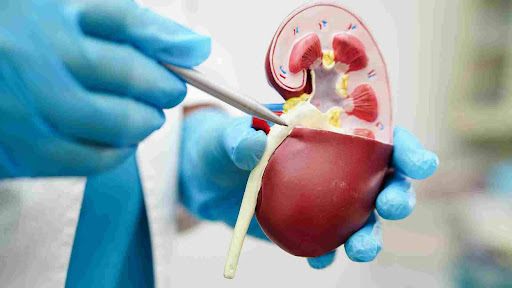Why Regular Urine Analysis is Important for Your Overall Well-being
3 min read
By DocGenie , Published on - 10 March 2025 A urine test is one of the most basic yet essential diagnostic tools in modern healthcare. Whether it's for identifying early signs of infection, monitoring chronic diseases, or assessing general health, urine analysis offers a wealth of valuable information.
A urine test is one of the most basic yet essential diagnostic tools in modern healthcare. Whether it's for identifying early signs of infection, monitoring chronic diseases, or assessing general health, urine analysis offers a wealth of valuable information.In this article, we’ll explore what urine complete tests are, different types of urine tests, and why a complete urine examination should be a regular part of your health check-ups.
What Is a Complete Urine Examination?
 A complete urine examination (CUE) is a lab test used to assess the content, concentration, and composition of urine. It helps detect issues related to:
A complete urine examination (CUE) is a lab test used to assess the content, concentration, and composition of urine. It helps detect issues related to:- Kidneys and bladder
- Liver function
- Diabetes
- Urinary tract infections (UTIs)
- Dehydration or metabolic imbalances
This test is quick, painless, and provides early clues about underlying medical conditions, often before symptoms appear.
What Are the Different Types of Urine Tests?
 There are several urine tests, each with a specific purpose:
There are several urine tests, each with a specific purpose:- Routine Urine Test (Urinalysis) This test checks color, clarity, pH, protein, glucose, ketones, blood, and other parameters. It is commonly used for general health screening.
- Urine Culture Test Used to identify bacterial infections in the urinary tract. It's especially recommended when UTI symptoms like burning, frequency, or foul-smelling urine occur.
- 24-Hour Urine Test Measures specific substances (like protein, creatinine, calcium) over a 24-hour period to assess kidney health and detect imbalances.
- Urine Microscopy This involves checking urine under a microscope to detect red or white blood cells, crystals, or bacteria.
Each of these plays a unique role in offering a detailed urine complete analysis report for better diagnostic clarity.
What Does a Urine Test Reveal About Your Health?
Urine tests are a powerful indicator of several health conditions. Here’s what a complete urine test can detect:- Kidney disease: Elevated protein levels may signal kidney dysfunction
- Diabetes: High glucose or ketone presence can be early warning signs
- Urinary tract infections (UTIs): High white blood cell count or bacteria in the urine confirms infection
- Liver issues: Bilirubin in urine may indicate liver disease
- Dehydration: Concentrated, dark urine indicates poor hydration levels
These results help your doctor decide if further testing or treatment is needed.
Why Is Regular Urine Analysis Important?
- Preventive Healthcare A urine test can uncover hidden problems before they become serious. For example, minor kidney issues can go unnoticed until irreversible damage occurs.
- Chronic Disease Monitoring Patients with hypertension, diabetes, or kidney disease benefit from regular urine complete analysis to monitor disease progression and adjust treatment.
- Non-Invasive and Cost-Effective Urine tests are simple, affordable, and non-invasive. Regular testing ensures you catch health issues early without major diagnostic interventions.
- Pregnancy and Women's Health Pregnant women often undergo regular urine tests to detect gestational diabetes, UTIs, and preeclampsia (high blood pressure-related complications).
When Should You Get a Urine Test Done?
You should consider a urine test if you experience:- Burning sensation while urinating
- Frequent urination
- Blood in urine
- Pain in the lower abdomen or back
- Cloudy or foul-smelling urine
Even without symptoms, an annual complete urine examination as part of a general health check-up is a smart preventive step.
What Is Included in a Urine Complete Analysis Report?
The urine complete analysis report typically includes:- Physical characteristics: Color, clarity, and odor
- Chemical examination: pH, glucose, protein, bilirubin, ketones, nitrites
- Microscopic examination: RBCs, WBCs, epithelial cells, casts, crystals
Each finding helps point towards specific conditions, guiding further medical intervention if required.
Conclusion
A complete urine examination is more than just a basic test—it’s a preventive health tool that can reveal a wide array of medical issues early on. Whether you're managing an ongoing condition or simply ensuring your well-being, regular urine complete test offers clarity and peace of mind.Take charge of your health—schedule your urine complete analysis as part of your routine health check-up.



